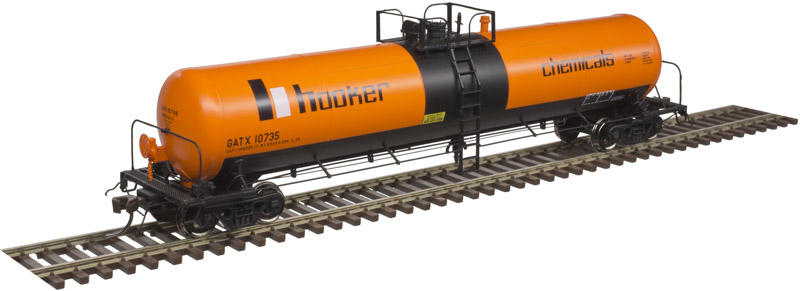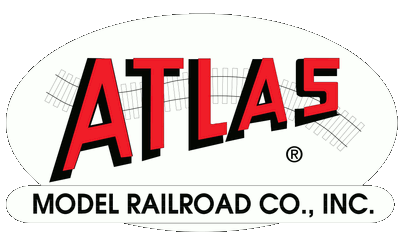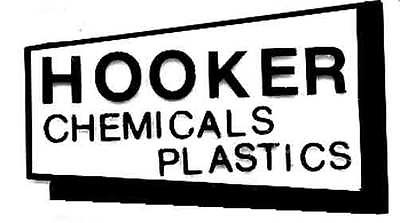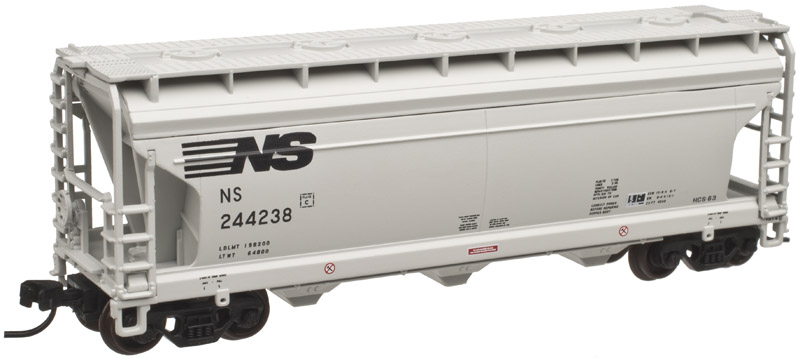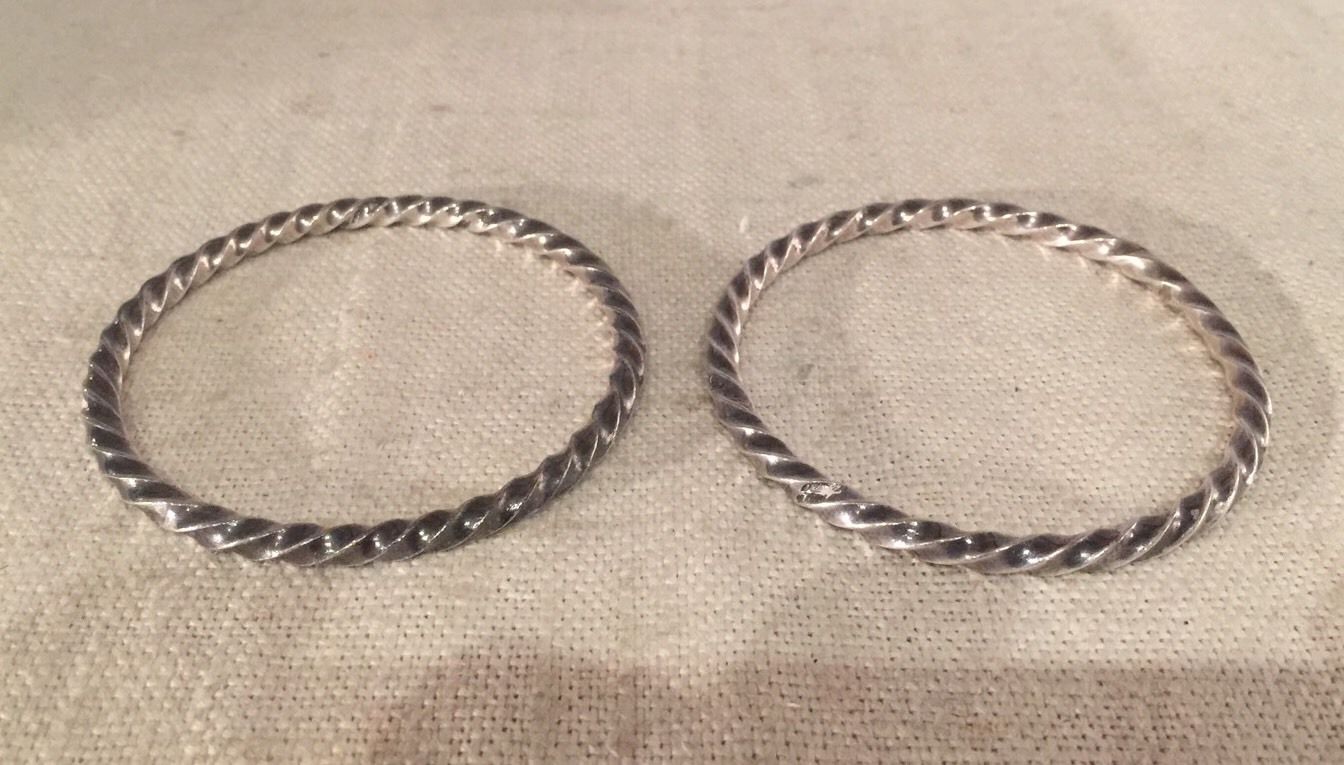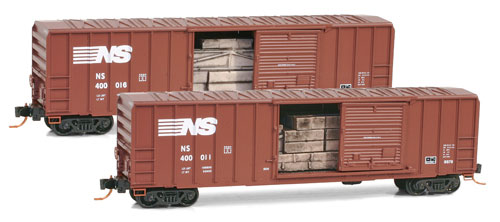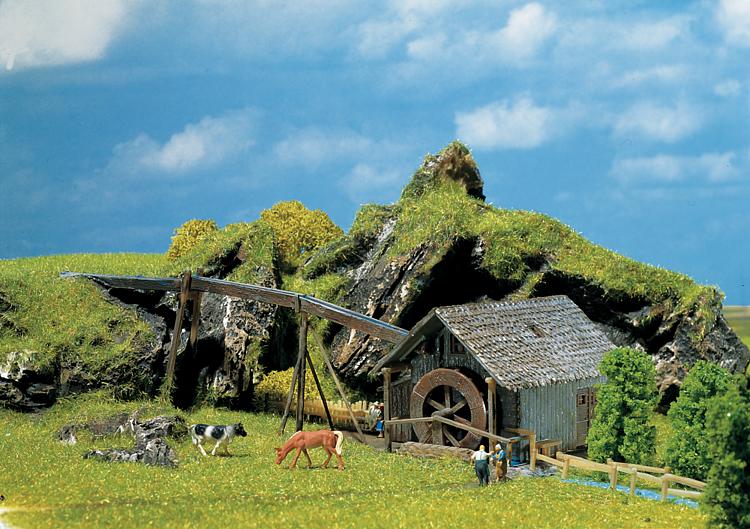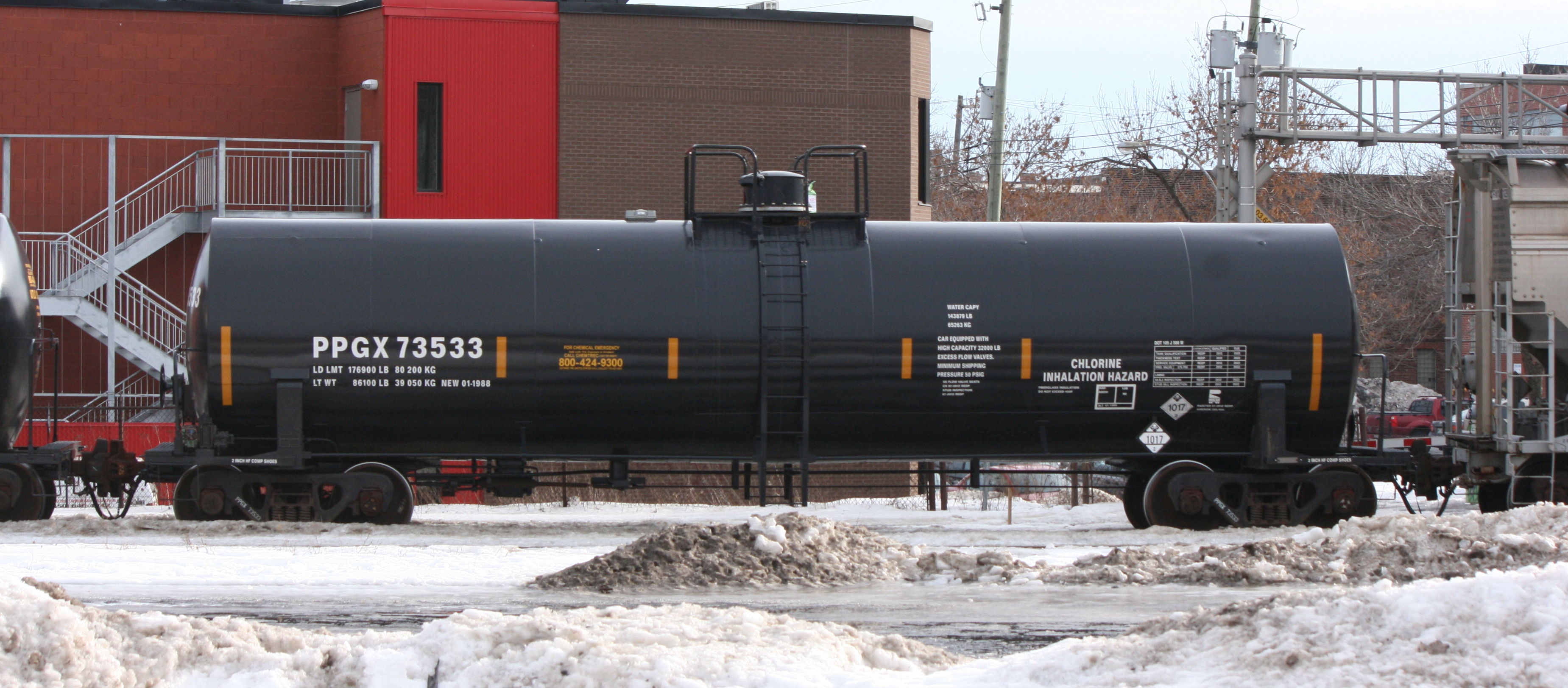Body Style Information: The Atlas model of the 20,700 gallon tank car was introduced in the mid-Sixties by General American Transportation Corporation, more commonly known simply as GATX. The design is a general-purpose, non-insulated, non-pressure tank car. The Atlas model recreates two major saddle variations (Type 10 and Type 20) and two top platform variations (one- and two-piece). The more common products carried in this tank car were tallow, animal fat, fuel oil, diesel fuel, vegetable oil, soybean oil, fertilizers, lubricating oil, waste oil, and glycol.
Features: Detailed five section non-insulated body Two saddle variations (Type 10 or 20) Detailed top platform with two options (one- or two-piece) With A-end pipe stubs (where applicable) See-through end walks Detailed brake gear and pipes Bottom outlet Safety vent Manway Control housing Stuffing box Safety rails Correct lettering to prototype cars
Features: Detailed five section non-insulated body Two saddle variations (Type 10 or 20) Detailed top platform with two options (one- or two-piece) With A-end pipe stubs (where applicable) See-through end walks Detailed brake gear and pipes Bottom outlet Safety vent Manway Control housing Stuffing box Safety rails Correct lettering to prototype cars
Prototype Information: Larger, 50' Tank cars replaced their smaller predecessors in the late 1960s and 1970s. The Richmond Tank Car Company was one of several manufacturers to produce these general purpose railcars. They generally had about 20,000 gallon capacity and were used to transport many different commodities.
Road/Company Information: Hooker Chemical Company was an American chemical company that produced chlor-alkali products from 1903 to 1968. In 1922, Hooker bought the S. Wander & Sons company for the retail sales of lye and chlorinated lime. Hooker Chemical is best known for the chemical waste site Love Canal, which it sold in 1953, and led to a lengthy lawsuit several decades later.
The company was founded in 1903 as "The Development and Funding Company" by Elon Huntington Hooker, of Rochester, NY. Hooker created a company that used the Townsend cell to elecrolyse salt into chlorine and sodium hydroxide (NaOH), also known as "caustic soda" and "lye," in a chloralkali process. Elmer Sperry, founder of Sperry Electric, and Leo Baekeland, inventor of Bakelite and Velox photographic paper consulted for Hooker to improve the design of the cell.
The company was originally sited in Niagara Falls, NY because of the low cost electricity from the Niagara Falls power project (completed in 1895), the abundance of salt from nearby mines, and availability of water from the Niagara River. However, in 1929 Hooker built a new chloralkali plant in Tacoma Washington. Hooker also owned factories in Albany, NY.
Hooker Chemical Company was purchased by Occidental Petroleum Corporation in 1968.
The company was founded in 1903 as "The Development and Funding Company" by Elon Huntington Hooker, of Rochester, NY. Hooker created a company that used the Townsend cell to elecrolyse salt into chlorine and sodium hydroxide (NaOH), also known as "caustic soda" and "lye," in a chloralkali process. Elmer Sperry, founder of Sperry Electric, and Leo Baekeland, inventor of Bakelite and Velox photographic paper consulted for Hooker to improve the design of the cell.
The company was originally sited in Niagara Falls, NY because of the low cost electricity from the Niagara Falls power project (completed in 1895), the abundance of salt from nearby mines, and availability of water from the Niagara River. However, in 1929 Hooker built a new chloralkali plant in Tacoma Washington. Hooker also owned factories in Albany, NY.
Hooker Chemical Company was purchased by Occidental Petroleum Corporation in 1968.
Brand/Importer Information: In 1924 Stephan Schaffan, Sr. founded the Atlas Tool Company in Newark, New Jersey. In 1933 his son, Stephan Schaffan, Jr., came to work for his father at the age of sixteen. Steve Jr. built model airplanes as a hobby and frequented a local hobby shop. Being an enterprising young man, he would often ask the owner if there was anything he could do to earn some extra spending money. Tired of listening to his requests, the hobby-store owner threw some model railroad track parts his way and said, "Here, see if you can improve on this".
Atlas has made a ton of wonderful products throughout the years and we often get questions one whether we have run a certain road name on a particular model. It should be noted that Atlas locomotives and rolling stock are greatly appreciated for their superior operating and running characteristics. Atlas products are also well known for their outstanding collectability not only due to their superior prototypical workmanship, details and decoration, but because there are relatively so few of them made. Each and every production run has been carefully built to market demand, meaning almost every piece in any given run is sold out by Atlas on arrival or shortly thereafter, thus creating a built in collectors market.
Atlas has made a ton of wonderful products throughout the years and we often get questions one whether we have run a certain road name on a particular model. It should be noted that Atlas locomotives and rolling stock are greatly appreciated for their superior operating and running characteristics. Atlas products are also well known for their outstanding collectability not only due to their superior prototypical workmanship, details and decoration, but because there are relatively so few of them made. Each and every production run has been carefully built to market demand, meaning almost every piece in any given run is sold out by Atlas on arrival or shortly thereafter, thus creating a built in collectors market.
Manufacturer Information: In 1924 Stephan Schaffan, Sr. founded the Atlas Tool Company in Newark, New Jersey. In 1933 his son, Stephan Schaffan, Jr., came to work for his father at the age of sixteen. Steve Jr. built model airplanes as a hobby and frequented a local hobby shop. Being an enterprising young man, he would often ask the owner if there was anything he could do to earn some extra spending money. Tired of listening to his requests, the hobby-store owner threw some model railroad track parts his way and said, "Here, see if you can improve on this".
Atlas has made a ton of wonderful products throughout the years and we often get questions one whether we have run a certain road name on a particular model. It should be noted that Atlas locomotives and rolling stock are greatly appreciated for their superior operating and running characteristics. Atlas products are also well known for their outstanding collectability not only due to their superior prototypical workmanship, details and decoration, but because there are relatively so few of them made. Each and every production run has been carefully built to market demand, meaning almost every piece in any given run is sold out by Atlas on arrival or shortly thereafter, thus creating a built in collectors market.
Atlas has made a ton of wonderful products throughout the years and we often get questions one whether we have run a certain road name on a particular model. It should be noted that Atlas locomotives and rolling stock are greatly appreciated for their superior operating and running characteristics. Atlas products are also well known for their outstanding collectability not only due to their superior prototypical workmanship, details and decoration, but because there are relatively so few of them made. Each and every production run has been carefully built to market demand, meaning almost every piece in any given run is sold out by Atlas on arrival or shortly thereafter, thus creating a built in collectors market.
Item created by: devsummers428 on 2020-07-27 13:15:43. Last edited by devsummers428 on 2020-07-27 13:15:44
If you see errors or missing data in this entry, please feel free to log in and edit it. Anyone with a Gmail account can log in instantly.
If you see errors or missing data in this entry, please feel free to log in and edit it. Anyone with a Gmail account can log in instantly.


